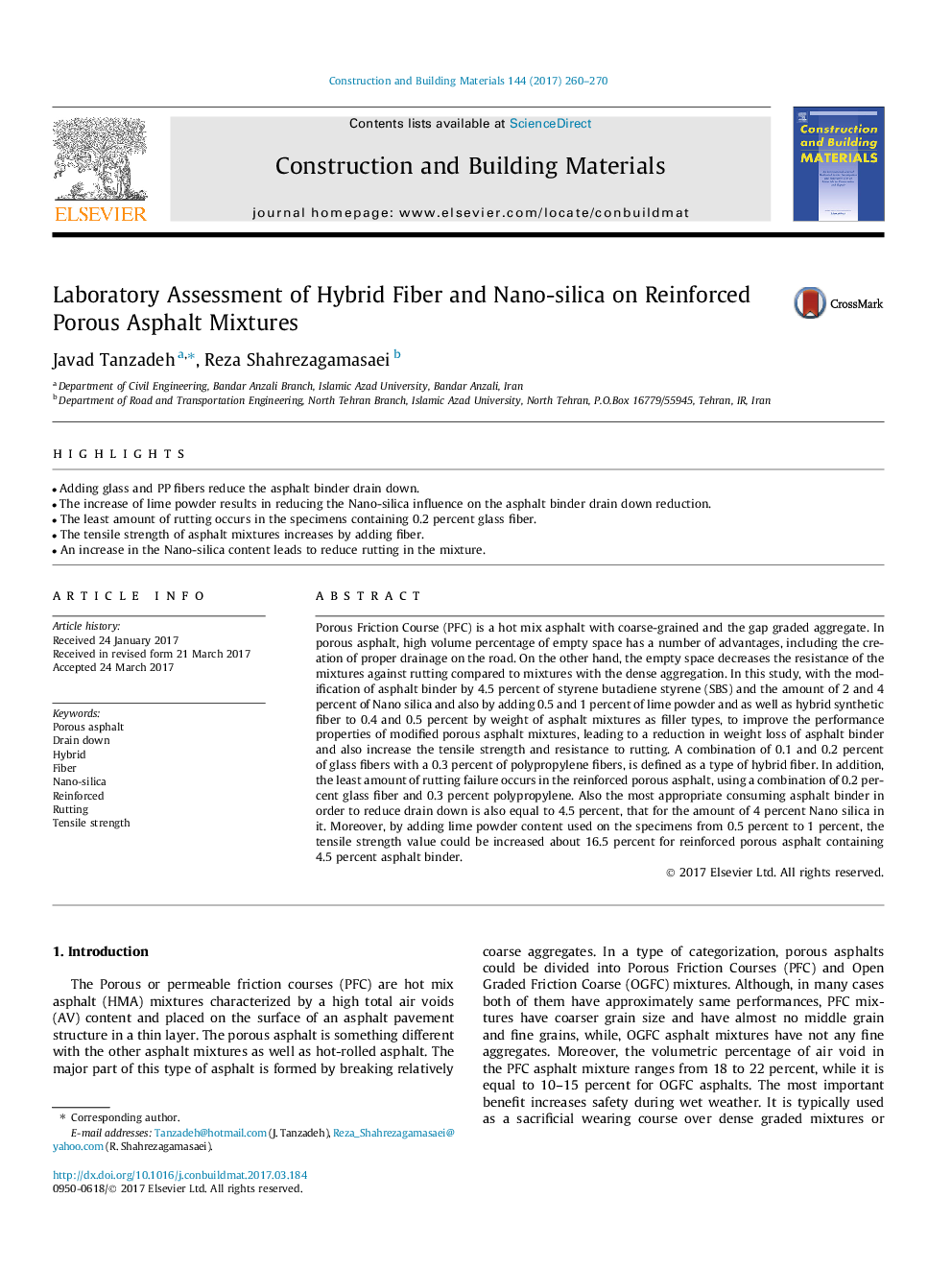| Article ID | Journal | Published Year | Pages | File Type |
|---|---|---|---|---|
| 4913165 | Construction and Building Materials | 2017 | 11 Pages |
Abstract
Porous Friction Course (PFC) is a hot mix asphalt with coarse-grained and the gap graded aggregate. In porous asphalt, high volume percentage of empty space has a number of advantages, including the creation of proper drainage on the road. On the other hand, the empty space decreases the resistance of the mixtures against rutting compared to mixtures with the dense aggregation. In this study, with the modification of asphalt binder by 4.5 percent of styrene butadiene styrene (SBS) and the amount of 2 and 4 percent of Nano silica and also by adding 0.5 and 1 percent of lime powder and as well as hybrid synthetic fiber to 0.4 and 0.5 percent by weight of asphalt mixtures as filler types, to improve the performance properties of modified porous asphalt mixtures, leading to a reduction in weight loss of asphalt binder and also increase the tensile strength and resistance to rutting. A combination of 0.1 and 0.2 percent of glass fibers with a 0.3 percent of polypropylene fibers, is defined as a type of hybrid fiber. In addition, the least amount of rutting failure occurs in the reinforced porous asphalt, using a combination of 0.2 percent glass fiber and 0.3 percent polypropylene. Also the most appropriate consuming asphalt binder in order to reduce drain down is also equal to 4.5 percent, that for the amount of 4 percent Nano silica in it. Moreover, by adding lime powder content used on the specimens from 0.5 percent to 1 percent, the tensile strength value could be increased about 16.5 percent for reinforced porous asphalt containing 4.5 percent asphalt binder.
Related Topics
Physical Sciences and Engineering
Engineering
Civil and Structural Engineering
Authors
Javad Tanzadeh, Reza Shahrezagamasaei,
